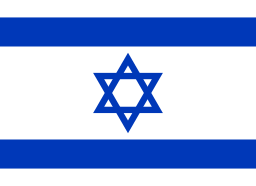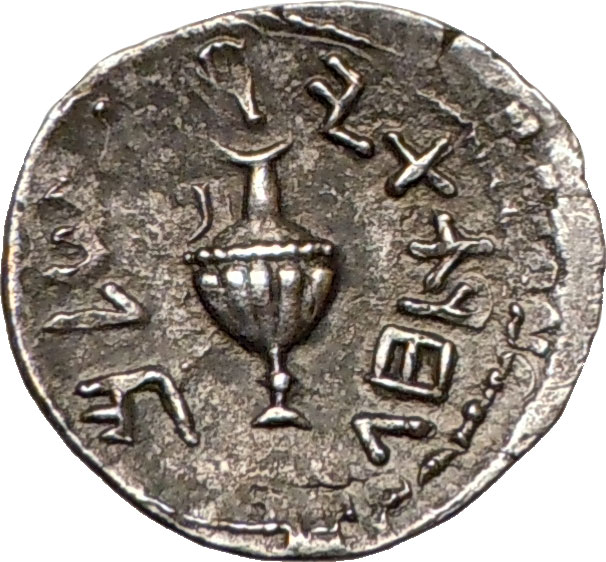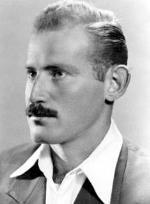
מבוא בּיתר Coordinates: 31° 43' 20.64" N 35° 6' 24.11" E 
|
||

מבוא בּיתר Coordinates: 31° 43' 20.64" N 35° 6' 24.11" E 
|
||
| Home | Maps | Founders | Links |

|
Read a Biographical Sketch |
Read a Biographical Sketch in Hebrew |
|

Potpovitch, z"l |

|

Katz, z"l |

|

|

Munk, z"l |

יוסף
דויטש הי"ד
Joseph Deutsch
בן אהרן וחיה. נולד ביום י"ט בשבט תרצ"ז (31.1.1937) בירושלים, למשפחה ירושלמית המושרשת בה חמישה דורות. למד ב"תלמוד תורה" ("עץ חיים") ובבית-ספר פרידמן. מגיל רך גילה נטיה מיוחדת לענייני תקומת-ישראל ובטחונו בארץ והראה פעילות באימון צבאי. שאף להצטרף לצה"ל ככל המוקדם ורצונו עז לשרת בנח"ל כדי להגן על ישובי-ספר. כשם שגילה כשרון ותפיסה בלימודיו כן הראה כושר ארגון ופיקוד. בשלוש שנות-חייו האחרונות התמסר לישובי-הספר ולבסוף קשר גורלו במשק מבואות-ביתר. ביום י"ח בסיון תשי"ד (19.6.1954) נפל בקרב עם האויב על-יד מבואות-ביתר והוא אז בן י"ז בלבד. הובא למנוחת-עולמים בבית-הקברות בגבעת-שאול אשר בירושלים. הספר "תורת המלך" (הלכות מלכים) מאת הרב גרשון אריאלי, שהופיע בירושלים תשי"ח, מוקדש לזכרו
Son of Aharon and Chaya. Joseph was born on January 31, 1937 in Jerusalem, to a Jerusalem family that has been rooted in Jerusalem for five generations. He studied at the Talmud Torah (Etz Chaim) and at the Friedman School. From a young age, Joseph showed a special inclination toward the revival and security of Israel, and acted on his concerns with military training. Joseph aspired to join the IDF at the earliest possible opportunity; he wanted to serve in the Nahal paramilitary brigade in order to protect the settlements. Just as he discovered talent and perception in his studies, Joseph showed organizational ability and command. In the last three years of his life, he devoted himself to the yeshivas and eventually connected his fate to the economy of Mevo'ot Betar.
On the 18th of Sivan 5714 (19 June 1954) Joseph fell in battle with the enemy near Mevo'ot Betar; he was seventeen. Joseph was brought to eternal rest in the cemetery on Givat Shaul in Jerusalem. The book Laws of King by Rabbi Gershon Arieli, published in Jerusalem in 1958, is dedicated to Joseph's memory.

צבי (הקטור)
איידמן
Hector Eidman
צבי
(הקטור), בן
מנדל-מנחם
ומיכאלה, נולד
בכ"ז בניסן תרצ"ב
(03.05.1932) בעיירת
הכותנה וילה
אנגלה, מחוז
צאקו,
ארגנטינה.
בבית הוריו
התחנך על אהבת
העם היהודי
ומולדתו
ובגיל צעיר
הצטרף לתנועת
הנוער
הציונית בית"ר,
בה בלט
במסירותו
ונאמנותו.
צבי היה
ספורטאי
וכדורגלן
מצטיין, תלמיד
בבי"ס למסחר,
שבעקבות
הרצון לעלות לארץ
שינה את
תוכניותיו
ולמד מקצוע
טכני, שיביא
תועלת למדינה
שזה עתה נולדה.
המשפחה
התכוננה
לעלות לישראל
ב- 1948, אך עקב
מחלתו
ופטירתו של
האב התעכבה עד
שנת 1952. בשנהזו
עלו לארץ האם,
מיכאלה, ושני
ילדיה, חנה
וצבי. הם הצטרפו
לבת הבכורה,
מלכה, שעלתה
שנה קודם לכן
והתיישבה
במבוא ביתר,
מדרום-מערב
לירושלים.
צבי
הג'ינג'י
התנדב לכל
משימה בעבודה
ובהגנה על
היישוב. ביוני
1954 הוא הצליח
להציל שניים
מבין חמישה
חברים שיצאו
לסיור
והותקפו
על-ידי ירדנים.
כעבור ארבעים
שנה נמצא מכתב
ששלח צבי לחברו
בארגנטינה,
ובו תיאור
מדויק של האירועים.
בכ"ד
בטבת תשט"ז, (18.01.1955),
עבדו צבי
וחברו אליעזר
(באינו) כ"ץ
בכפר עגור,
באדמות שהיו
שייכות למבוא ביתר.
באותו לילה
חדרה לעגור
קבוצת
מסתננים חמושים
מירדן במטרה
לבצע הרג ושוד.
למחרת, כאשר
הגיע למקום
אחד מתושבי
הכפר כדי להעיר
את הבחורים
שהיו אמורים
לחרוש את שדהו
באותו יום,
מצא את דלת
ביתם פרוצה.
על הרצפה
נמצאו שתי
גופות, כאשר
צבי אוחז ברגל
חברו כדי
לנסות להצילו.
התברר כי המסתננים
תקפו את הבית
שבו שהו צבי
ואליעזר, הרגו
את השניים ושדדו
את נשקם.
עקבות הדם
בחוץ העידו על
כך שצבי הצליח
לפצוע את אחד
המסתננים.
בן
23 היה במותו.
הותיר אחריו
שתי אחיות.
צבי
הובא למנוחות
בבית העלמין
במבוא ביתר.
הוא נקבר ליד
אמו, שחלתה
ונפטרה כמה
חודשים לפניו.
מצידו השני
נקבר חברו
אליעזר, שניהם
עלו ארצה עם
חלום, עבדו
יחד ומצאו
מותם יחד.
.
Son of Mendel-Menachem and Michaela. Zvi (Hector) was born on May 27, 1932 in the cotton town of Villa Angela in the district of Tsaku, Argentina. In his parents' home, Hector was educated on the love of the Jewish people and their homeland. He joined the Zionist youth movement Beitar at an early age, where he stood out for his devotion and loyalty.
As a student in a school of commerce, Hector was an outstanding athlete and soccer player. To best benefit the newly born state, to which he desired to immigrate, Hector changed his educational goals and learned a technical profession. His family was preparing to immigrate to Israel in 1948, but because of the illness and death of his father, their plans were delayed until 1952 when Hector, his mother Michaela, and his sister Chana immigrated to Israel. The eldest sister, Malka, had immigrated to Israel during the previous year, where she settled in Mevo Beitar, southwest of Jerusalem; Hector and the rest of the family joined Malka there.
Hector, the redhead, volunteered for every job and defense mission. In June 1954, Hector managed to save two of his five friends who were attacked by Jordanians while on patrol. Several months later, on the 18th of Tevet 5707 (18.01.1955), Hector and his friend Eliezer (Beino) Katz were working in the village of Agur on land belonging to Mevo Beitar. On the night of the 18th, a group of armed infiltrators from Jordan, entering the area to kill and rob, had atacked the house where Hector and Eliezer were staying. The following morning, one of the villagers came to wake the boys, who were supposed to plow his field; the villager found their house door broken. Inside, two bodies were found on the floor; Hector was holding his friend Eliezer's leg in an attempt to save him. The two men had been robbed of their weapons. Traces of blood found outside of the house testified that Hector managed to injure one of the infiltrators.
Hector was four months short of his twenty-third birthday. He was survived by his two sisters. Hector was laid to rest, next to his mother, in the Mevo Beitar cemetery; his mother had been ill and died a few months before her son. Hector's friend Eliezer is buried on the other side of Hector. Both Hector and Eliezer immigrated to Israel with a dream, worked together, and found their deaths together.

משה
רובין
Moises Rubin
משה, בן לאון-אריה
ואידה רובין,
נולד בט' באדר
תרצ"ג (07.03.1933) בבואנוס-איירס,
ארגנטינה, שם
השלים את
לימודיו
היסודיים
והתיכוניים.
היה חניך
תנועת 'בית"ר'
בבואנוס-איירס
וחבר בגרעין
לעלייה
ולהכשרה של
התנועה.
כשהשלים
את מסלול
החינוך
האידיאולוגי
עלה לארץ, ב- 20
ביוני 1953,
והצטרף למושב
התנועה מבוא
ביתר, שבהרי
ירושלים.
במשק עבד
בהפעלת המדחס
(קומפרסור)
וכרה את התעלה
הראשונה
בסלעי ההר, על
מנת להניח קו
ראשון לאספקת
המים למושב.
בי"ח
בסיוון תשי"ד
(19.06.1954), ביום השנה
לעלייתו ארצה,
יצא משה עם
עוד שניים
מחברי המשק
לחורשת עצי
הפרי הסמוכה
למשק, בקרבת
גבול ירדן
דאז. חוליית
מסתננים
מירדן, שהכינו
מארב בחורשה,
פתחה עליהם
באש.
משה
וחבריו ניסו
להשיב אש, אך
כלי הנשק שהיו
ברשותם לא
פעלו כראוי.
בתום קרב
גבורה שנמשך 3 שעות
נהרגו השלושה.
גופותיהם
נגררו לשטח
ירדן והושחתו.
חבריו למשק
זוכרים את משה
כצעיר יפה
תואר
ואידיאליסט,
שהספיק לחיות
ביניהם שנה
אחת בלבד לפני
שנפל על הגנת
המולדת, והוא
בן 21 במותו.
המדחס
שהפעיל בחייו
שימש גם
לכריית קברו,
כאשר הובא
למנוחות
במושב
השיתופי מבוא
ביתר.
Son of Leon Arieh and Ida Rubin. Moshe was born on March 7, 1933 in Buenos Aires, Argentina where he completed his elementary and high school studies. Moshe was a member of the Beitar Movement, the members of which planned aliyah as a group. On completion of the course of ideological education, Moshe immigrated to Israel on June 20, 1953 where he joined the Mevo Beitar moshav in the mountains of Jerusalem.
On the farm he operated the compressor and contributed to the digging of the first canal in the rocky hills surrounding the moshav; the canal supplied water to Mevo Beitar.
On the anniversary of his immigration to Israel, Moshe and two other members of the kibbutz went to a grove of fruit trees next to the farm, which was then near the Jordan border. A group of infiltrators from Jordan, who had set up an ambush in the orchard, opened fire on them. Moshe and his comrades tried to return fire, but their weapons did not work properly. At the end of a three-hour battle, the three were killed; their bodies were then dragged into Jordan and destroyed.
Moshe's friends in the kibbutz remember him as a handsome and idealistic young twenty-one year-old who lived only one year before he fell in the defense of his homeland. The compressor he used in life was used to excavate his grave where he was laid to rest in the cooperative moshav of Mevo Beitar.
|
Please contact Leah Haber Gedalia with your additions, questions, corrections, or comments! Sponsor: Shapira Smadar webmaster: richard L. baum |
|
This page is hosted at no cost to the public by JewishGen, Inc., a non-profit corporation. If it has been useful to you, or if you are moved by the effort to preserve the memory of our lost communities, your JewishGen-erosity would be deeply appreciated. |
|
KehilaLinks Home |
JewishGen Home
|
Created: 18 June 2017
Last Modified: 08-23-2018
Copyright © 2017 Shapira Smadar
All Rights Reserved.